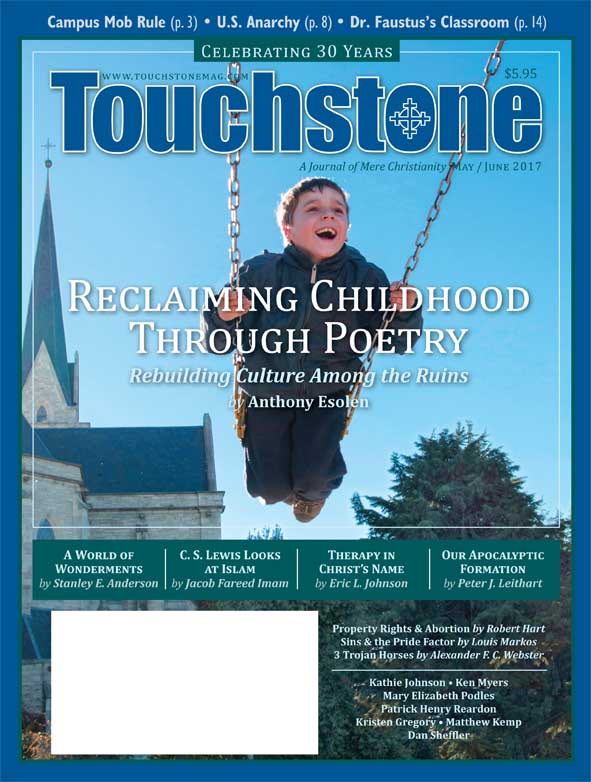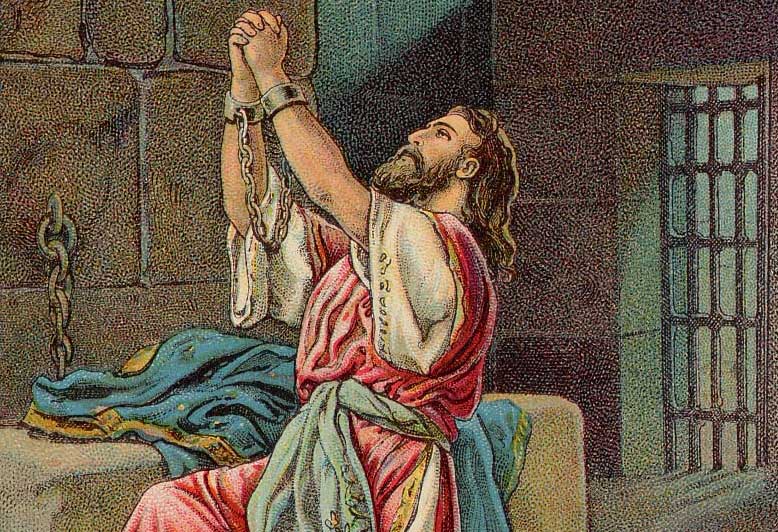

View
Known Trespassing
Robert Hart on the Misuse of Property Rights to Justify Slavery & Abortion
In the third and final debate of the 2016 Presidential election, held on October 19 between Hillary Clinton and Donald Trump, the question of late-term abortion was brought up by the moderator, Chris Wallace. Clinton attempted to justify late-term abortion with the usual recitation of "life and health of the mother" (and we should ask, what about the rest of those abortions, which constitute the majority of them, that have nothing to do with the mother's life or health?). Trump responded by denouncing the procedure in a general sort of way, speaking of the baby being "ripped from the womb" at any time right up until the moment of natural birth.
I find Mr. Trump's answer to be the one most often heard when this matter is debated, but there is more to say, especially when one is speaking against that particular form of late-term abortion known as partial-birth abortion (a term that pro-abortion apologists hate for its accuracy). The National Right to Life Committee describes it this way:
Partial-Birth Abortion is a procedure in which the abortionist pulls a living baby feet-first out of the womb and into the birth canal (vagina), except for the head, which the abortionist purposely keeps lodged just inside the cervix (the opening to the womb). The abortionist punctures the base of the baby's skull with a surgical instrument, such as a long surgical scissors or a pointed hollow metal tube called a trochar. He then inserts a catheter (tube) into the wound, and removes the baby's brain with a powerful suction machine. This causes the skull to collapse, after which the abortionist completes the delivery of the now-dead baby. (nrlc.org/archive/abortion/facts/pbafacts.html)
It is obvious that the child in these cases is not only alive but fully formed, and able to live outside the mother's womb. If the purpose for terminating a pregnancy at this stage is to preserve the mother's life or health, why then kill the baby? Why not simply bring it all the way to birth? What is the point of interrupting the delivery to take the baby's life? What medical purpose can that possibly serve?
The answer is that it serves no medical purpose whatsoever. It serves only as murder, an assassination committed by a member of the medical profession.
Motives for Murder
This brings us to the argument that only the mother, with the assistance of her doctor and family, should be the ones finally to make this choice. But what is the choice we are speaking of at this point? Simply ending the pregnancy is no longer the issue, because that can be done without killing the child.
Anyone familiar with genuine homicide cases, or even with popular murder mysteries featuring fictional detectives like Hercule Poirot and Lt. Columbo, understands that family members can have strong motives for homicide. That is why they so often come under suspicion in murder cases.
Neither a mother, nor a doctor, nor family members are permitted to decide on the life or death of anyone who has been born. But even though the law allows such a decision to be made in partial-birth abortion cases, surely the motives—whatever they may be—cannot justify the act. In other murders, they would simply become part of the prosecution's case. So should it be in these cases.
A Dangerous Parallel
Slavery in the United States was not brought to an end by the Emancipation Proclamation. That pronouncement allowed the slave states that remained in the Union, such as Maryland, to remain slave states. What finally ended slavery throughout the United States was the ratification of the Thirteenth Amendment to the Constitution, which says:
Neither slavery nor involuntary servitude, except as a punishment for crime whereof the party shall have been duly convicted, shall exist within the United States, or any place subject to their jurisdiction.
By definition, slavery was a matter of forced servitude based on the legal status of some human beings as the property of other human beings. Where an individual cannot legally be declared the property of another, slavery does not exist. Involuntary servitude may be imposed on a convicted criminal because such imposition does not reduce the convict to a piece of property; only servitude imposed on those declared to be human property can rightly be labeled "slavery."
There is a dangerous parallel between slavery and partial-birth abortion, for the latter reestablishes the legal status of one human being as the property of another. Frankly, so does abortion generally, but the graphic reality of partial-birth abortion exposes, by its terrible enormity, that in addition to making this form of murder legal, we have reestablished the legal status of human property. For only if the infant is the property of the mother has that mother any theoretical right to order its destruction.
People on the left, who generally favor abortion, nevertheless agree with most modern Americans that slavery is entirely unjust and evil. But in so doing, they hold two contrary opinions: that a mother has the right to arrange for the murder of her unborn child and that no one has the right to reduce the status of any person to that of human property. George Orwell, in his classic novel Nineteen Eighty-Four, referred to this mental exercise as "doublethink."
Two Questions
I wish I could have been the one to answer Hillary Clinton's cliché about "the life and health of the mother" that night—not that I would ever wish to spend four years in what would be, for me, the purgatory of the Presidency. But I believe these two considerations should be added to the arsenal of pro-life apologetics. Two hypothetical questions that cannot be answered satisfactorily are, "Why then kill the baby?" and "By what right if not of property—human property?"
Robert Hart is rector of St. Benedict's Anglican Catholic Church in Chapel Hill, North Carolina (Anglican Catholic Church Original Province). He also contributes regularly to the blog The Continuum. He is a contributing editor of Touchstone.
more on abortion from the online archives
PLEASE NOTE: If you are enjoying your Touchstone subscription, please consider purchasing a gift subscription for a friend or loved one. We depend on our subscribers and donors to keep publishing. Subscribers get six issues a year plus full access to the Touchstone online archives —that's 30 years worth of award winnning articles!


No comments:
Post a Comment